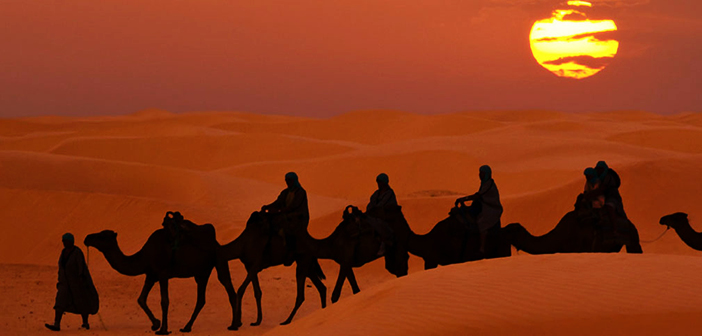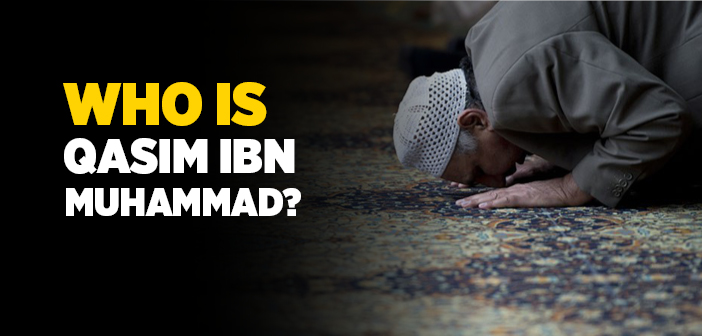What is Muahat? What does muahat means? The Pact of Brotherhood between the Muhajirun and the Ansar: Muahat
From the moment he started the Call, irrespective of the race or tribe they belonged to, the Messenger of Allah -upon him blessings and peace- regarded all those who entered Islam as equal and instituted among them the brotherhood of Islam. He twice established a muahat, a pact of brotherhood, the first before the Hegira and the other after. The pact in Mecca involved setting up a brotherhood between the Muslims of Quraysh and the freed slaves. Zayd ibn Harithah and Hamza, for instance, were declared ‘brothers’, just as Salim, the freed slave of Abu Hudayfah and Abu Ubaydah ibn Jarrah, and Bilal Habashi and Ubaydah ibn Harith -Allah be well-pleased with them-.[1]
Attached to one another from the very first years of Islam, Muslims showed a second display of brotherhood following the Hegira.
The moment the Muhajirun stepped foot inside Medina, a heated battle emerged between the Ansar, who were contesting each other enthusiastically, to host their newly arrived brothers. The sweet dispute unsettled, they were eventually forced to draw lots to decide who would get to host who.[2] Five months after the arrival to Medina, the Messenger of Allah -upon him blessings and peace- designated for each Muhajir a brother from the Ansar; the venue for the declaration of the pact being the house of Anas ibn Malik -Allah be well-pleased with him-.[3]
Just to cite a few pairings, Abu Bakr was made a brother with Kharijah ibn Zayd, Omar with Utban ibn Malik, Abu Ubaydah with Saad ibn Muadh, Othman with Aws ibn Thabit,[4] Bilal Habashi with Abdullah ibn Abdurrahman,[5] Salman with Abu’d-Darda,[6] Salim with Muadh ibn Maiz,[7] and Ammar with Hudayfah[8] -Allah be well-pleased with them-. Taken into consideration in these pairings were the temperamental similarities of both persons.
Each immigrant family was boarded in the house of a Medinan. The Companions who were declared brothers were thus to work together and share what they earned. The Ansar donated their excess land to the Blessed Prophet -upon him blessings and peace-, who divided them amongst the Muhajirun. Still discontented, the Ansar went so far as to insist the Messenger of Allah -upon him blessings and peace- to:
“…divide our date fields among our immigrant brothers as well!”
“That cannot be”, the Noble Prophet -upon him blessings and peace- said, upon which the Ansar then made the following proposal to the Muhajirun:
“Then you undertake the work of watering and taking care of the trees and we will split the harvest!” With the approval of the Blessed Prophet -upon him blessings and peace-, both sides agreed to the deal. (Bukhari, Harth, 5)
This brotherhood was centered around the physical and spiritual assistance of Muslims who had left behind all they had in Mecca and migrated to Medina to start everything from scratch, by the Ansar of Medina welcoming them with open arms; motivated with the aim of making the Muhajirun forget the grief of having been driven out of their hometown only for their belief and of warming them to Medina, their new home, and fusing the Muslims together through a the founding of a mutual solidarity.
The pact, stemming purely from the love of iman and established far from pretension, had a far reaching content, extending to cover mutual rights, fairness and assistance, including inheritance.[9] ‘Brothers’ were legal guardians and inheritors of one another. Although the pact of brotherhood remained in principle, the clause pertaining to inheritance was later amended by a Revelation subsequent to the Battle of Badr, which restricted inheritance solely to birth rights.[10]
Ibn Abbas -Allah be well-pleased with him- explains, in relation to the matter:
“Due to the brotherhood founded by the Messenger of Allah, a Muhajir had a right of inheriting the legacy of an Ansari brother, over and above his blood relations. But the ayah:
“And to every one We have appointed heirs of what parents and near relatives leave”, (an-Nisa, 33) overruled this practice. With the subsequent part of the ayah:
“…and as to those with whom your rights hands have ratified agreements, give them their portion”, the rights of brotherhood between the Muhajirun and the Ansar became limited to mutual aid, support and good will. Legal inheritance was thereby abolished. But a person could still voluntarily bequeath legacy, provided it did not exceed a third of his wealth.” (Bukhari, Tafsir, 4/7; Abu Dawud, Faraid, 16/2922)
The muahat served to put an end to the ensuing battle between Aws and Khazraj, the local tribes of Medina, and establish a brotherhood that ran deeper than blood. They could hardly wait for morning to arrive, just to see each other. Upon seeing each other, they would enthusiastically ask how they had been, as if they had not seen each other in years. Rarely would three days past before they visited one another. It was a brotherhood that attracted Divine praise, applauded by the Holy Quran.[11]
The Blessed Prophet -upon him blessings and peace- was laying the foundations of a Muslim society and state in Medina. Required first was thus the establishment of a social unity and solidarity, and no better could that be provided than mutual love and assistance. For that reason, the pact of brotherhood instituted by the Prophet of Allah -upon him blessings and peace- between the Muhajirun and the Ansar proved to be the most important factor in shaping a society unparalleled in the history of mankind.
The Noble Prophet -upon him blessings and peace- founded the newly emerging Muslim society on no other basis than the brotherhood of Islam, not on a basis either tribal or racial, or a social categorization between free and slave, rich and poor, and the like. A Muslim society was constructed through blending people of immense social differences together.
[1] Ibn Seyyidinnâs, I, 321; Ibn Habîb, p.70; Ibn Abdilbar, ad-Durar, p. 90.[2] Bukhari, Janaiz, 3; Manaqıbu’l-Ansar, 46.[3] Bukhari, Edeb, 67.[4] Ibn Hisham, II, 124-125.[5] Ibn Saad, III, 233, 234.[6] Bukhari, Adab, 67.
[7] Ibn Abdilbar, II, 567.[8] Hakim, III, 435/5657.[9] Bukhari, Kafala, 2; Adab, 67.[10] See, al-Anfal, 72-75; Bukhari, Faraid, 16.[11] See, al-Hashr, 9.
Source: Osman Nuri Topbaş, The Prophet Muhammed Mustafa the Elect II, Erkam Publications





